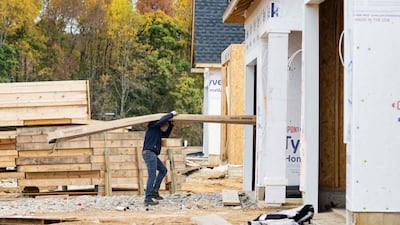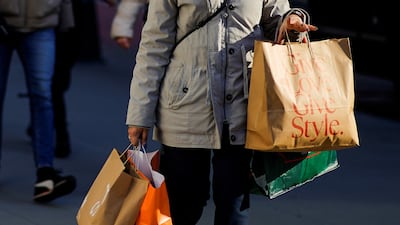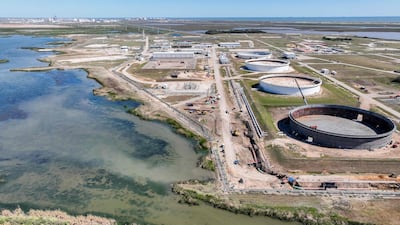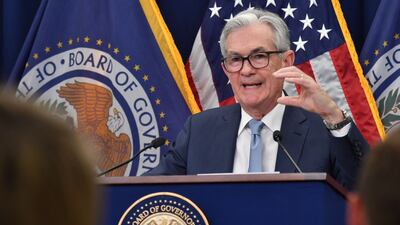Worldwide faith in economic progress has been eroded significantly, with a 20-year survey finding record-low confidence in the next five years.
Only 40 per cent of 32,000 people surveyed by the annual Edelman Trust Barometer said they feel they and their families would be better off in five years, a drop of 10 per cent from the same time last year and the lowest in the survey's history.
The findings come as governments battle to prevent a recession in 2023. Inflation and interest rates are on the rise, increasing the cost of living for the average person and slowing growth. A squeeze blamed on Russia's invasion of Ukraine has sent energy and fuel prices up.
In the UAE and Saudi Arabia, there was a six and nine per cent drop in the number of people feeling optimistic about the next five years respectively, but numbers remain high in general as 72 per cent of UAE respondents and 64 per cent said they would be better off.
The only country reporting an improvement on last year's results was China, where confidence rose 1 per cent from 64 per cent of respondents believing they and their families would be better off in five years.
China recently lifted most Covid-19 measures, an about-face from late last year when many of the country's largest cities were under some form of lockdown. The economy is expected to bounce as the country opens up and travel resumes.
Sweden posted no change at 29 per cent in those expecting to be better off in five years.
The US economy in 2022 - in pictures
The Edelman Trust Barometer, run by the PR company since 2000, asked people in 28 countries about their trust in institutions and outlook on the future.
Respondents said their fears for the future revolved around personal issues led by fear of losing employment (89 per cent) and inflation (74 per cent) as well existential issues led by climate change (76 per cent), and food shortages (67 per cent).
People are not alone in having concern for the state of the world. A PwC survey released this week found 73 per cent of 4,410 chief executives in 105 countries expect global economic growth to decline this year.
The Edelman survey also found business was the only institution trusted by the majority of people to “do what is right”, over NGOs, governments, and the media. Sixty-two per cent of people said they trusted business, while only 50 per cent trusted government.
Technology has remained the most trusted sector (75 per cent) followed by education (71 per cent). Social media remained the least trusted at 44 per cent.
“The increased perception of business as ethical brings with it higher than ever expectations of chief executives to be a leading voice on societal issues,” said Richard Edelman, chief executive of Edelman.
“By a six-to-one margin, on average, respondents want more societal involvement by business on issues such as climate change, economic inequality, and workforce reskilling. But business must tread carefully, more than half (52 per cent) of our respondents do not believe business can avoid being politicised when it addresses contentious societal issues.”
While globally people said that the rich and powerful as well as hostile foreign governments were the major causes of division in their country, people agreed that business and NGO leaders were a unifying force.
Teachers, however, stood out as being seen as an overwhelmingly unifying force, with 64 per cent of people saying they bring people together as opposed to 20 per cent saying they pull people apart.



















